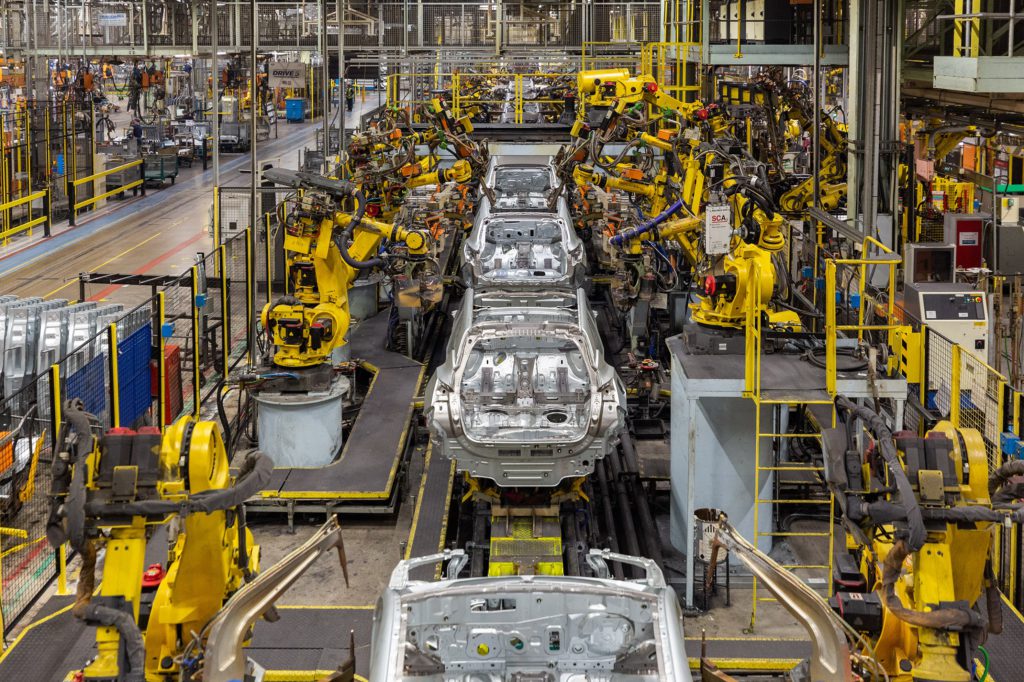Nissan commits to UK with additional battery production
22 January 2021

22 January 2021
Nissan has committed to its manufacturing plant in the UK following the end of Brexit trade talks, and will move electrically-chargeable vehicle (EV) battery production to the country as a result.
The committal will secure 6,000 jobs at the plant, which exports around 70% of its capacity to Europe. Speaking to the BBC, Nissan did not confirm whether its plans would increase employment, but said the move will help the company comply with the need for exported vehicles to comprise mostly ′locally-sourced’ components.
Nissan was one of many carmakers vocal about the need for a free-trade agreement (FTA) between the UK and the EU following Brexit. The company’s Sunderland plant was often cast under a shadow, with bosses pointing out that keeping production in the country would ′not be viable,’ if import and export tariffs were introduced.
Speaking to the BBC, Nissan’s chief operating officer Ashwani Gupta said: ′The Brexit deal is positive for Nissan. Being the largest automaker in the UK, we are taking this opportunity to redefine auto-making in the UK.
′We have decided to localise the manufacture of the 62kWh battery in Sunderland so that all our products qualify [for tariff-free export to the EU]. We are committed to Sunderland for the long term under the business conditions that have been agreed.’
Sourcing strains
The moving of battery production to the UK allows Nissan to comply with thresholds for locally-sourced components included in the FTA. These imply that no more than 60% of an EV can comprise of non-EU or UK components until 2023, with this dropping to a stricter 50% until 2026. If these thresholds are breached, tariffs will be applied to exported vehicles.
Currently, Nissan manufactures batteries in Japan, and these are shipped to Sunderland for use in the company’s Leaf model. Had it continued with this supply chain, each unit would have faced a 10% tariff on export to the EU.
Moving the production of batteries to the UK also significantly shortens the supply chain, removing the need for shipping across the sea, and therefore vastly reducing the total carbon footprint of EVs built at the Sunderland plant.
′The news that the UK will be home to additional battery production in the North East is hugely positive and an essential step in the transformation of the automotive sector to electric motoring,’ Commented Mike Hawes, chief executive of the Society of Motor Manufacturers and Traders (SMMT). ′It is an investment that is a direct consequence of the UK agreeing a deal with the EU and providing a much-needed boost to the sector and region.
′The Road to Zero will require a rapid acceleration in the take up of these new technologies and massive investment in infrastructure and local capability. We have the scale – as a market and as a production location – to warrant the necessary investment but our attractiveness depends on maintaining these advantages and consistently enhancing our competitiveness. We need to build on this announcement, and implement a strategy which safeguards automotive manufacturing and delivers a rapid transition to the benefit of all of society.’
Differing routes
Nissan’s announcement comes in stark contrast to the warning issued by Stellantis CEO Carlos Tavares during a press conference earlier this week. When asked by journalists, he was unable to confirm the future of the company’s Ellesmere Port plant, drawing on the UK government’s decision to ban internal combustion engine sales in 2030 as a reason for the lack of clarity.
′As soon as you say that we are going to ban the sales of this kind of car, we will stop investing,’ Tavares commented. ′If we are told that in 2030, ICE cannot be sold in the UK, which we respect as a decision from the country, then we are not going to invest in ICE anymore, because that makes no sense.’
The Stellantis boss suggested that the company looks at market volumes and places its manufacturing of vehicles strategically to serve areas with higher sales. ′You put your investment close to the market where you sell the highest volume.’
However, while Nissan’s Sunderland plant is tooled to produce EVs, Ellesmere Port is not, and currently it only makes ICE versions of the Opel Astra. Moreover, Nissan recently announced the closure of its factory in Spain and has no other manufacturing bases of its own on the continent, while Stellantis has plants in France, Germany, Poland and southern Europe, meaning it can easily move production closer to its volume-leading markets.